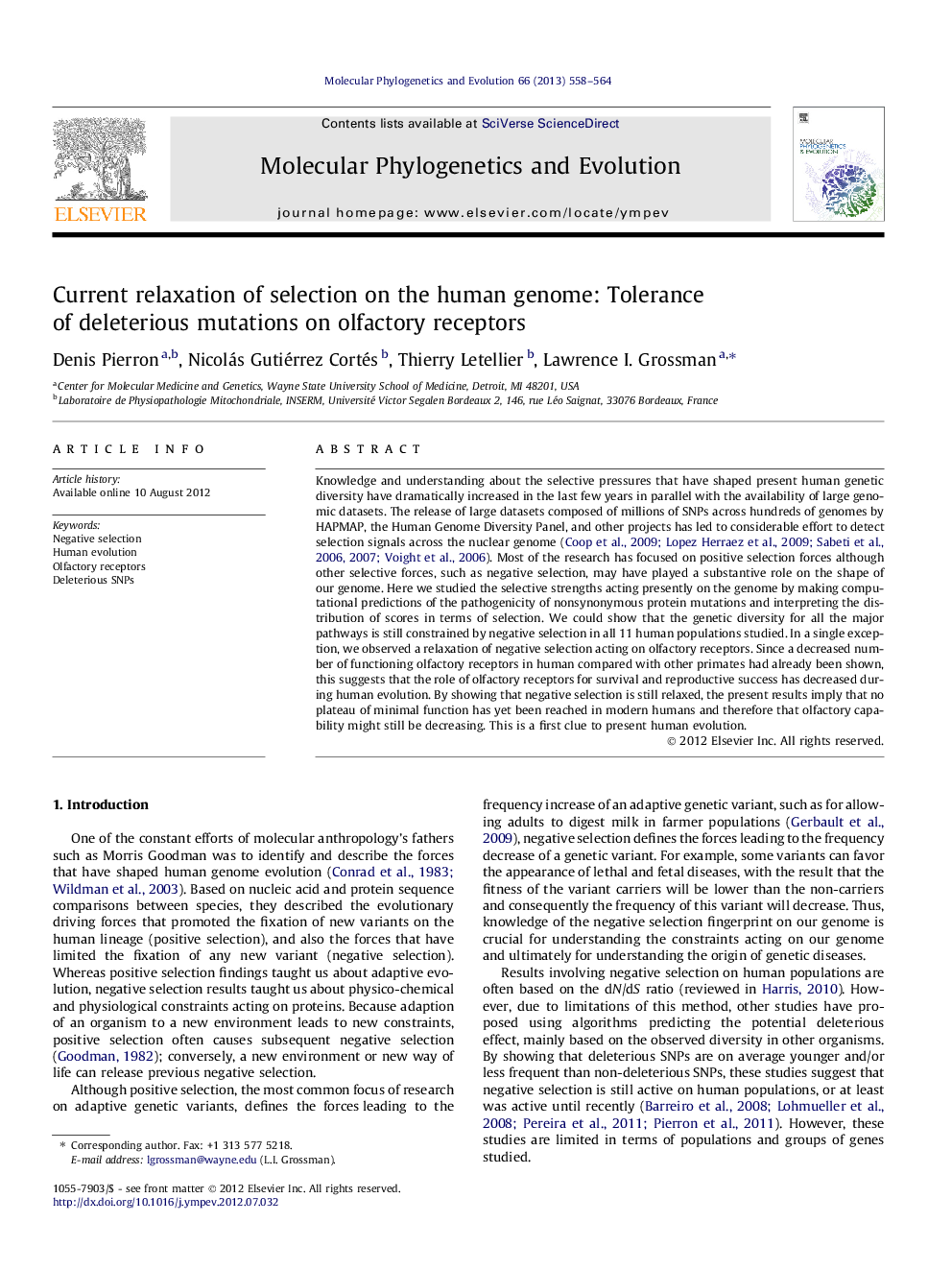| کد مقاله | کد نشریه | سال انتشار | مقاله انگلیسی | نسخه تمام متن |
|---|---|---|---|---|
| 2834084 | 1164288 | 2013 | 7 صفحه PDF | دانلود رایگان |

Knowledge and understanding about the selective pressures that have shaped present human genetic diversity have dramatically increased in the last few years in parallel with the availability of large genomic datasets. The release of large datasets composed of millions of SNPs across hundreds of genomes by HAPMAP, the Human Genome Diversity Panel, and other projects has led to considerable effort to detect selection signals across the nuclear genome (Coop et al., 2009, Lopez Herraez et al., 2009, Sabeti et al., 2006, Sabeti et al., 2007 and Voight et al., 2006). Most of the research has focused on positive selection forces although other selective forces, such as negative selection, may have played a substantive role on the shape of our genome. Here we studied the selective strengths acting presently on the genome by making computational predictions of the pathogenicity of nonsynonymous protein mutations and interpreting the distribution of scores in terms of selection. We could show that the genetic diversity for all the major pathways is still constrained by negative selection in all 11 human populations studied. In a single exception, we observed a relaxation of negative selection acting on olfactory receptors. Since a decreased number of functioning olfactory receptors in human compared with other primates had already been shown, this suggests that the role of olfactory receptors for survival and reproductive success has decreased during human evolution. By showing that negative selection is still relaxed, the present results imply that no plateau of minimal function has yet been reached in modern humans and therefore that olfactory capability might still be decreasing. This is a first clue to present human evolution.
Figure optionsDownload as PowerPoint slideHighlights
► Negative selection helped shape genetic diversity in all studied populations.
► Frequencies of predicted ‘deleterious’ SNPs reveals selective constraints.
► Negative selection is relaxed on olfactory receptor genes.
Journal: Molecular Phylogenetics and Evolution - Volume 66, Issue 2, February 2013, Pages 558–564